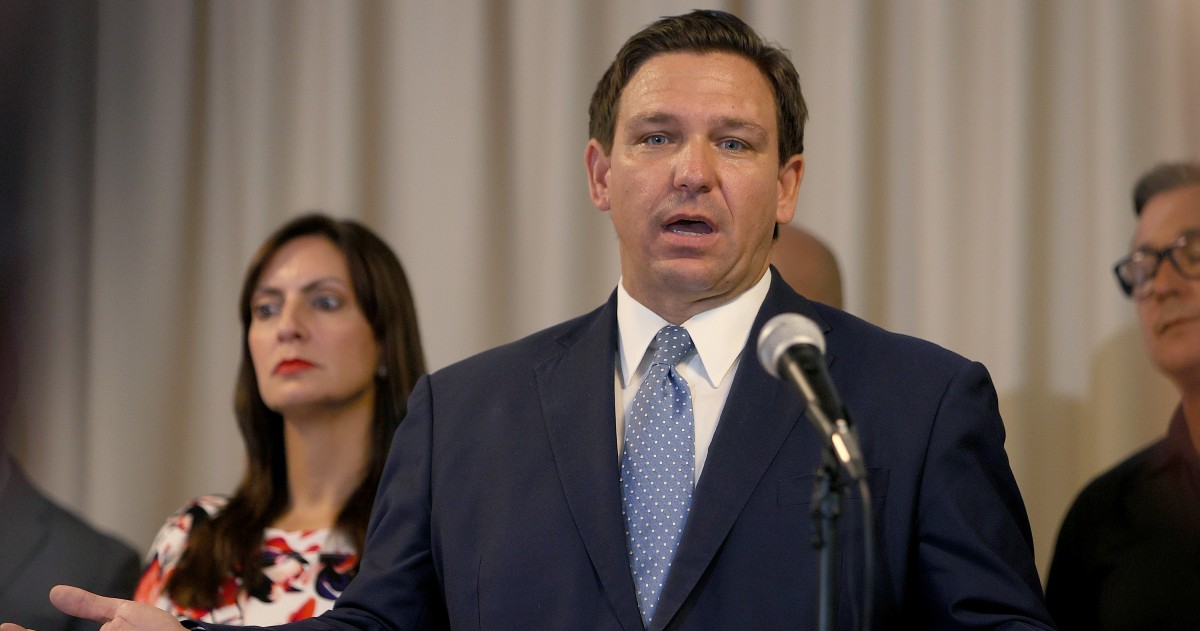OPINION: This article may contain commentary which reflects the author's opinion.
A federal judge appointed by former President Bill Clinton blocked Florida GOP Gov. Ron DeSantis over an order taking on Big Tech.
U.S. District Judge Robert Hinkle issued a preliminary injunction blocking the Florida law that would prohibit “a social media platform from willfully de-platforming a candidate.”
DeSantis signed the bill in late May, remarking:
We are now, though, in a situation where we have things that were probably unforeseen by the founding fathers. Whereas they established a First Amendment to protect people’s freedom of speech, religion, and association from government overreach, we now have a situation in which some of these massive, massive companies in Silicon Valley are exerting a power over our population that really has no precedent in American history, and I would suggest monopolies today, these big tech monopolies are exerting way more influence over our society than the monopolies of the early 20th century, which led to antitrust and a lot of trust busting. So we’re in a situation here where these platforms have become our public square.
Floridians and other Americans go on these platforms to be able to share ideas. Heck, you go back to the beginning of these platforms, they actually were very liberating because you had corporate media, those legacy outlets, that many Americans grew to distrust, and rightfully so. They no longer had the monopoly on information. You could actually go around the legacy media, share information on these platforms and that was very, very positive for millions and millions of Americans.
Actually, it was a little too positive and the powers that be didn’t like that, and so I think what we’ve seen in recent years is a shift away from internet platforms, social media platforms from really being liberating forces to now being enforcers of orthodoxy. And so their primary mission, or one of their primary missions, seems to be suppressing ideas that are either inconvenient to the narrative or that they personally disagree with.
The law states:
Social media platforms that unfairly censor, shadowban, deplatform, or apply post-prioritization algorithms to Florida candidates, Florida users, or Florida residents are not acting in good faith. … Social media platforms have unfairly censored, shadow banned, deplatformed, and applied post-prioritization algorithms to Floridians.
A social media platform may not willfully deplatform a candidate for office who is known by the social media platform to be a candidate, beginning on the date of qualification and ending on the date of the election or the date the candidate ceases to be a candidate. A social media platform must provide each user a method by which the user may be identified as a qualified candidate and which provides sufficient information to allow the social media platform to confirm the user’s qualification by reviewing the website of the Division of Elections or the website of the local supervisor of elections.
Upon a finding of a violation of subsection (2) by the Florida Elections Commission, in addition to the remedies provided in ss. 106.265 and 106.27, the social media platform may be fined $250,000 per day for a candidate for statewide office and $25,000 per day for a candidate for other offices.
In his injunction, Judge Hinkle argued that banning “de-platforming” likely violated the free speech rights of the tech companies, writing, “The legislation compels providers to host speech that violates their standards — speech they otherwise would not host — and forbids providers from speaking as they otherwise would.”
He added sarcastically, “Like prior First Amendment restrictions, this is an instance of burning the house to roast a pig. … Balancing the exchange of ideas among private speakers is not a legitimate governmental interest. And even aside from the actual motivation for this legislation, it is plainly content-based and subject to strict scrutiny.”
U.S. Supreme Court Justice Clarence Thomas has written extensively about reining in social media companies.
He recently wrote:
“Our legal system and its British predecessor have long subjected certain businesses, known as common carriers, to special regulations, including a general requirement to serve all comers. … this Court long ago suggested that regulations like those placed on common carriers may be justified, even for industries not historically recognized as common carriers, when ‘a business, by circumstances and its nature, . . . rise[s] from private to be of public concern.’”
Thomas continued:
But whatever may be said of other industries, there is clear historical precedent for regulating transportation and communications networks in a similar manner as traditional common carriers. … governments have tied restrictions on a carrier’s ability to reject clients to ‘immunity from certain types of suits’ or to regulations that make it more difficult for other companies to compete with the carrier (such as franchise licenses). By giving these companies special privileges, governments place them into a category distinct from other companies and closer to some functions, like the postal service, that the State has traditionally undertaken. … In many ways, digital platforms that hold themselves out to the public resemble traditional common carriers. Though digital instead of physical, they are at bottom communications networks, and they ‘carry’ information from one user to another.
